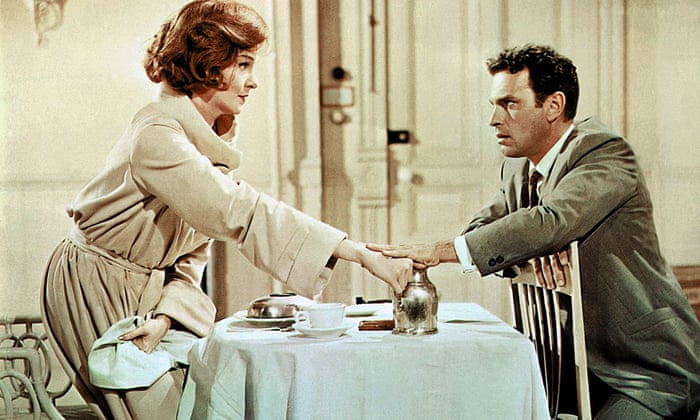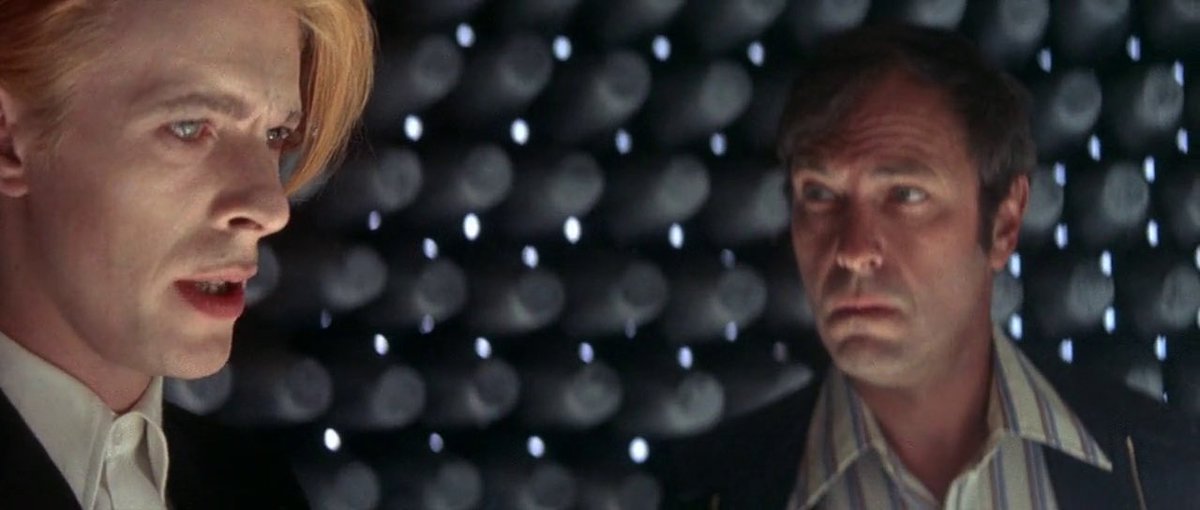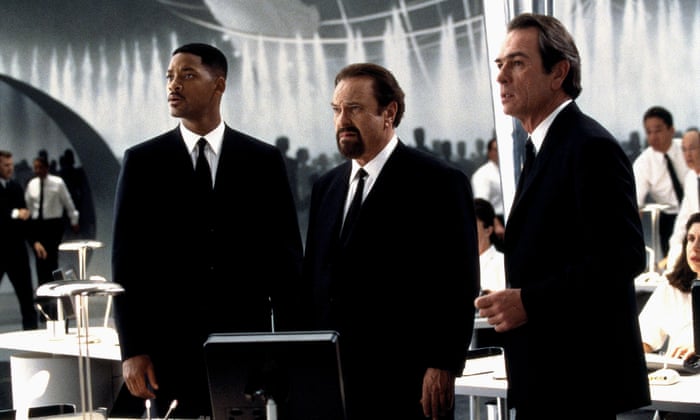
Anita Gates
The New York Times
9 July 2019
Rip Torn, who earned a glowing reputation as a versatile actor on both stage and screen, but who never quite shed a less savory one as an inveterate troublemaker, died on Tuesday at his home in Lakeville, Conn. He was 88.
His publicist, Rick Miramontez, announced the death.
Mr. Torn made his reputation as a gifted actor in the works of Tennessee Williams and in roles as diverse as Walt Whitman, Richard Nixon and Judas Iscariot. But no role brought him more fame than that of the bullying producer on “The Larry Sanders Show,” one of the most acclaimed television comedies of the 1990s.
As the gruff Artie on “Larry Sanders,” which starred Garry Shandling as the neurotic star of a late-night talk show and which ran from 1992 to 1998 on HBO, Mr. Torn stole practically every scene he was in.
9 July 2019
Rip Torn, who earned a glowing reputation as a versatile actor on both stage and screen, but who never quite shed a less savory one as an inveterate troublemaker, died on Tuesday at his home in Lakeville, Conn. He was 88.
His publicist, Rick Miramontez, announced the death.
Mr. Torn made his reputation as a gifted actor in the works of Tennessee Williams and in roles as diverse as Walt Whitman, Richard Nixon and Judas Iscariot. But no role brought him more fame than that of the bullying producer on “The Larry Sanders Show,” one of the most acclaimed television comedies of the 1990s.
As the gruff Artie on “Larry Sanders,” which starred Garry Shandling as the neurotic star of a late-night talk show and which ran from 1992 to 1998 on HBO, Mr. Torn stole practically every scene he was in.
Artie was so loyal to Larry that when Larry’s wife locked her husband out of their bedroom, it was Artie who broke down the door. When a drunken writer half Artie’s age tried to rush the stage while the show within a show was on the air, he tackled the young man to the floor without a second’s hesitation.
Mr. Torn’s outsize performance brought him six Emmy Award nominations for outstanding supporting actor in a comedy series. He won the award in 1996.

Mr. Torn with Garry Shandling in an episode of the HBO series “The Larry Sanders Show,” one of the most acclaimed television comedies of the 1990s
Almost 30 years earlier he had received Obie Awards for his Off Broadway work, as an actor in Norman Mailer’s “The Deer Park” (1967) and as the director of Michael McClure’s “The Beard” (1968). But despite the critical accolades he consistently received in the following decades, other awards were elusive.
His last performance on Broadway, as a self-deluding Texan in Horton Foote’s drama “The Young Man From Atlanta” (1997), was warmly received. Ben Brantley of The New York Times cited Mr. Torn’s “imposing quality of emotional largeness,” which he said “brings mythic dimensions to this small-scale drama without bursting its seams.” But to the surprise of many, Mr. Torn was not nominated for a Tony Award.

Almost 30 years earlier he had received Obie Awards for his Off Broadway work, as an actor in Norman Mailer’s “The Deer Park” (1967) and as the director of Michael McClure’s “The Beard” (1968). But despite the critical accolades he consistently received in the following decades, other awards were elusive.
His last performance on Broadway, as a self-deluding Texan in Horton Foote’s drama “The Young Man From Atlanta” (1997), was warmly received. Ben Brantley of The New York Times cited Mr. Torn’s “imposing quality of emotional largeness,” which he said “brings mythic dimensions to this small-scale drama without bursting its seams.” But to the surprise of many, Mr. Torn was not nominated for a Tony Award.

Torn and Alan Alda in The Seduction of Joe Tynan, 1979
In fact, in a long stage and screen career, he was nominated only once for a Tony, for his performance as a sadistic young man in Williams’s “Sweet Bird of Youth” (1959), and only once for an Academy Award, for his turn as a hard-drinking backwoodsman in “Cross Creek” (1983), Martin Ritt’s drama about the author Marjorie Kinnan Rawlings (played by Mary Steenburgen). He did not win either time.
His reputation for volatility was one possible explanation. As he once acknowledged, “I get angry easily.”
He lost his cool most notably in 1968, when he was filming “Maidstone,” an underground film written and directed by Mailer. Mailer was also the star, playing a writer running for president. Mr. Torn played his half brother. In a decidedly unscripted moment, and for reasons that have never been made precisely clear, Mr. Torn struck Mailer with a hammer on camera; Mailer responded by attacking Mr. Torn and biting his ear. The fight became the centerpiece of the film.

Torn with Shirley Knight in the Broadway production of Horton Foote’s “The Young Man From Atlanta” in 1997
Later in life, Mr. Torn professed to have mellowed. In 1997 he told The Los Angeles Times: “I just don’t give people trouble anymore. I say, ‘Excuse me, I only fight with friends.’ And I walk away.”
Or at least he had moved on to fighting in court. Dennis Hopper told a story on “The Tonight Show” in 1994 about how Mr. Torn had pulled a knife on him during an argument in the 1960s. (It was apparently as a result of this argument that Jack Nicholson and not Mr. Torn was cast as the Southern lawyer in Mr. Hopper’s hit film “Easy Rider.”)
The way Mr. Torn remembered it, Mr. Hopper had pulled a knife on him, not the other way around, so he sued for defamation. He won.
Yet Mr. Torn maintained his bad-boy image to the end. He was arrested on drunken-driving charges several times in his 70s. In 2010 he was arrested after breaking into a Connecticut bank at night with a loaded gun in his possession. Explaining that he had been intoxicated and thought the bank was his house, he pleaded guilty to reckless endangerment, criminal trespass, criminal mischief and illegally carrying a firearm. He was given a suspended sentence and placed on probation for three years; during his probation he was subject to random drug and alcohol testing.
His brushes with the law may have defined Mr. Torn’s image for many people; he often suggested that this image and his political activism — he was an avid leftist — cost him work.

Later in life, Mr. Torn professed to have mellowed. In 1997 he told The Los Angeles Times: “I just don’t give people trouble anymore. I say, ‘Excuse me, I only fight with friends.’ And I walk away.”
Or at least he had moved on to fighting in court. Dennis Hopper told a story on “The Tonight Show” in 1994 about how Mr. Torn had pulled a knife on him during an argument in the 1960s. (It was apparently as a result of this argument that Jack Nicholson and not Mr. Torn was cast as the Southern lawyer in Mr. Hopper’s hit film “Easy Rider.”)
The way Mr. Torn remembered it, Mr. Hopper had pulled a knife on him, not the other way around, so he sued for defamation. He won.
Yet Mr. Torn maintained his bad-boy image to the end. He was arrested on drunken-driving charges several times in his 70s. In 2010 he was arrested after breaking into a Connecticut bank at night with a loaded gun in his possession. Explaining that he had been intoxicated and thought the bank was his house, he pleaded guilty to reckless endangerment, criminal trespass, criminal mischief and illegally carrying a firearm. He was given a suspended sentence and placed on probation for three years; during his probation he was subject to random drug and alcohol testing.
His brushes with the law may have defined Mr. Torn’s image for many people; he often suggested that this image and his political activism — he was an avid leftist — cost him work.

Torn as Judas Iscariot, speaking with the director Nicholas Ray during the filming of “King of Kings” in 1961
Elmore Rual Torn Jr. was born on Feb. 6, 1931, in Temple, Tex., a small city north of Austin, to Elmore and Thelma (Spacek) Torn. (The actress Sissy Spacek was a cousin of hers.) He inherited the nickname Rip from his father, an economist.
The younger Rip attended what is now Texas A&M University, where he studied agriculture, before transferring to the University of Texas and switching his focus to drama. After graduating, he served in the Army for two years and then moved to New York to study at the Actors Studio.
Early on, Mr. Torn played a small, uncredited part in Elia Kazan’s Southern Gothic film “Baby Doll” (1956), written by Williams, and a credited one in “Time Limit,” a 1957 drama starring Richard Widmark as an Army officer accused of treason. He also became a familiar face on television anthology series like “The United States Steel Hour” and “Kraft Theatre.”

Elmore Rual Torn Jr. was born on Feb. 6, 1931, in Temple, Tex., a small city north of Austin, to Elmore and Thelma (Spacek) Torn. (The actress Sissy Spacek was a cousin of hers.) He inherited the nickname Rip from his father, an economist.
The younger Rip attended what is now Texas A&M University, where he studied agriculture, before transferring to the University of Texas and switching his focus to drama. After graduating, he served in the Army for two years and then moved to New York to study at the Actors Studio.
Early on, Mr. Torn played a small, uncredited part in Elia Kazan’s Southern Gothic film “Baby Doll” (1956), written by Williams, and a credited one in “Time Limit,” a 1957 drama starring Richard Widmark as an Army officer accused of treason. He also became a familiar face on television anthology series like “The United States Steel Hour” and “Kraft Theatre.”

Torn with Geraldine Page and Muni Seroff in a 1972 television version of Chekhov’s “A Marriage Proposal"
His first two Broadway appearances were in Williams plays directed by Kazan. In 1956 he took over the lead male role, Brick, in “Cat on a Hot Tin Roof” toward the end of its run. Three years later he was in the original cast of “Sweet Bird of Youth.”
That play was good to him: Tony-nominated for his supporting performance as Tom Finley, the brother of the lead character’s old girlfriend, Mr. Torn eventually took over the lead role, the drifter Chance Wayne, from Paul Newman.

With Geraldine Page in Sweet Bird of Youth, 1962
Mr. Torn, Newman and Geraldine Page, Mr. Torn’s future wife, who played the faded movie star whom Chance takes up with, all reprised their original Broadway roles in the 1962 movie version. When “Sweet Bird of Youth” was adapted for television in 1989, Mr. Torn played yet another role: the vengeful Boss Finley, Tom’s father. Among his other TV roles was the dying Southern patriarch Big Daddy in a 1984 adaptation of “Cat on a Hot Tin Roof.”
Mr. Torn’s nine other Broadway appearances included three acclaimed revivals: Williams’s “The Glass Menagerie” (1975) and two plays by Eugene O’Neill: “Strange Interlude” (1963) and “Anna Christie” (1993). He also appeared frequently Off Broadway in the 1960s and ’70s.

Mr. Torn’s nine other Broadway appearances included three acclaimed revivals: Williams’s “The Glass Menagerie” (1975) and two plays by Eugene O’Neill: “Strange Interlude” (1963) and “Anna Christie” (1993). He also appeared frequently Off Broadway in the 1960s and ’70s.

The Wonder Boys, 2000
His movies ranged from the gritty drama “The Cincinnati Kid” (1965) to the biblical blockbuster “King of Kings” (1961), in which he played Judas, to escapist fare like “The Beastmaster” (1982) and “RoboCop 3” (1993).
His performance as Nixon came in the 1979 CBS mini-series “Blind Ambition,” based on a book by the former White House counsel John Dean (played by Martin Sheen). He was Walt Whitman in the 1990 movie “Beautiful Dreamers.”
Mr. Shandling said it was Mr. Torn’s performance as Albert Brooks’s unconvincingly reassuring afterlife lawyer in the comedy “Defending Your Life” (1991) that won him his role on “The Larry Sanders Show.”

With David Bowie in The Man Who Fell to Earth, 1976
Among Mr. Torn’s better-known movies were two science-fiction hits. In the dark “The Man Who Fell to Earth” (1976), he was a cynical scientist who befriends the title character, a space alien played by David Bowie; in the lighthearted “Men in Black” (1997), he headed an organization supervising extraterrestrials who secretly live on Earth. He reprised the role in the film’s 2002 sequel.

Will Smith, Torn and Tommy Lee Jones in The Men in Black, 1997
But he seemed to earn his best reviews and his most passionate audiences for films that were not hits.
“Payday” (1973), a road movie about a ruthless country singer, did not fare well at the box office but developed a cult following. His performance as an aging Memphis record producer in the 2005 drama “Forty Shades of Blue” was critically praised but also little seen. In his Times review of that film, A. O. Scott called Mr. Torn “a crafty and powerful actor” who was “easily the peer of Jack Nicholson or Tommy Lee Jones.”
Mr. Torn’s last screen roles included a lascivious Louis XV in Sofia Coppola’s “Marie Antoinette” (2006) and a blustery network chief, a character reminiscent of his Emmy-winning Artie, on the sitcom “30 Rock.” In 2016 he played the voice of a talking letter M wearing a top hat on the offbeat animated series “TripTank.”

As President Richard M. Nixon, with Martin Sheen as the White House counsel John Dean, in the 1979 CBS mini-series “Blind Ambition”
Mr. Torn married the actress Ann Wedgeworth in 1955. He married Ms. Page in 1963, two years after he and Ms. Wedgeworth divorced. They remained married until her death in 1987, but by then Mr. Torn had already begun a long-term relationship with the actress Amy Wright, who worked with Mr. Torn and Ms. Page’s Sanctuary Theater Workshop in New York.
In addition to Ms. Wright, Mr. Torn is survived by four daughters: Danae, from his first marriage, the actress Angelica Page, from his second, and Katie and Claire, from his relationship with Ms. Wright; two sons, Anthony and Jonathan, both from his second marriage; his sister, Patricia Alexander; and four grandchildren.
In a 1997 interview with The Times, Mr. Torn credited Geraldine Page with teaching him the secret of emotional health.
“I learned from Gerry that all you need is time on the stage,” he said. “No matter how I felt, no matter what anyone said about me, I always had the audience.”
Jacey Fortin contributed reporting.









No comments:
Post a Comment